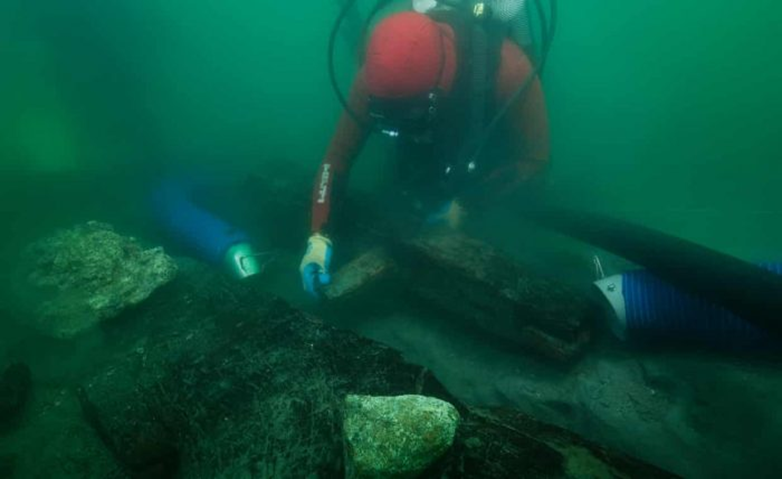Egyptian shipwreck gives Herodotus credit 2,500 years later

Archaeologists have recently discovered an ancient ruin that proves that the Greek historian Herodotus was completely correct in the observations he made nearly 25 centuries ago.
According to what the Guardian website reported, this wreck was of a ship recently discovered off the Mediterranean coast of Egypt near the ancient city of Tonis Heraklion. Herodotus described it in great detail in his book “History” (in Greek) after a visit he made to the city of Tonis Heraklion. coastal Egypt, and Herodotus explains in his book how amazed he was by the method of building the ship that was used to sail across the Nile River.

The site added that for centuries, archaeologists believed that the type of ship described by Herodotus never existed, because such ships had never been discovered by anyone on Earth.
The site indicated that this theory was blown up recently, when a group of archaeologists found well-preserved wreckage near the coast of Egypt at the mouth of the Canopic River, in the Mediterranean Sea. What the archaeologists saw when they hit the water was exactly the type of ship that Herodotus described in his book Exactly 2,469 years ago, the 28-meter-long ship was one of the first ships used by the Egyptians in trade during ancient times.
Dr. Damian Robinson, Director of the Center for Marine Archeology at the University of Oxford, explained that this ship was built in a unique way that had never been seen before. Most likely, this unique construction was the reason behind Herodotus’ astonishment when he saw the wood they were using to build ships, which She was completely unknown to him.

Herodotus was a Greek historian, and he was the first writer to present historical topics in a method of systematic investigation, and this made some call him the “Father of History.”
Source : websites

